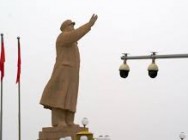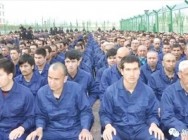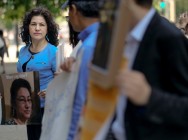Last Minute

- Conflict and Alliance: The US and China: A Centennial Dance: A Century of Relationship from 1900 to 2024
- CHINA RELATIONSEAST TURKESTAN PROBLEM AND TURKEY
- FRONTLINE China Undercover
- Elimination of “Uyghur Counter-Revolutionary Officials” in Academic Fields—Exact Quotes Translated from a Mandarin Audio File
- In Push for Trade Deal, Trump Administration Shelves Sanctions Over China’s Crackdown on Uighurs
- Dalai Lama’s 60th Anniversary Symposium: İlshat Hassan speech in English and Chinese
- Uyghur Detainees from Xinjiang ‘Placed in Nearly Every Prison’ in Shandong Province
- Shahrezad Ghayrat, Unrepresented Women
- Uighur Americans Speak Against China’s Internment Camps. Their Relatives Disappear.
- Rozinisa: The true story of the Uyghur girls in the prison

-

Conflict and Alliance: The US and China: A Centennial Dance: A Century of Relationship from 1900 to 2024
-

CHINA RELATIONSEAST TURKESTAN PROBLEM AND TURKEY
-

FRONTLINE China Undercover
-

Elimination of “Uyghur Counter-Revolutionary Officials” in Academic Fields—Exact Quotes Translated from a Mandarin Audio File
-

In Push for Trade Deal, Trump Administration Shelves Sanctions Over China’s Crackdown on Uighurs
-

Dalai Lama’s 60th Anniversary Symposium: İlshat Hassan speech in English and Chinese
Uyghur Traders Under Close Watch in Tibet
Ethnic minority Uyghur traders and businessmen living in or traveling to Tibet have been placed under heightened scrutiny by Chinese police following an escalation of violence in their homeland in the Xinjiang region, sources say.
New security measures include restrictions on freedom of movement and close inspection at checkpoints on roads leading to Tibet’s regional capital Lhasa, one Uyghur trader and longtime resident of Tibet told RFA’s Uyghur Service on Monday.
“It is very difficult now for Uyghurs to move freely from one place to another,” he said, vowing to abandon Tibet, which has been his home for more than a decade, and return to Xinjiang.
“Even though [the police] were tough on Uyghurs before, we were allowed to conduct our business as long as we had all the required papers,” he said, speaking on condition of anonymity. “But recently the situation has changed.”
As a resident of Tibet’s second-largest city Shigatse (in Chinese, Rikaze) for the last 15 years, the trader in dried fruits had always been on good terms with local police, he said.
“But recently, plainclothes police and state security police have come to check up on me, asking questions like, ‘Are Uyghurs coming here? What kinds of things are they doing?’”
Separatist attacks
Chinese authorities have blamed a series of recent attacks in Xinjiang on separatist groups involving the mostly Muslim Uyghurs, who complain of heavy-handed rule by Beijing, including curbs on Islamic practices, and ethnic discrimination.
The latest attack occurred on May 22 in an open market in the regional capital Urumqi and left 39 people dead and scores injured, triggering the launch by Chinese authorities of a year-long anti-terrorist campaign.
On April 30, as Chinese President Xi Jinping was wrapping up a visit to Xinjiang, assailants armed with knives and explosives carried out an attack at a railway station in the regional capital Urumqi, killing one person and injuring 79. Two attackers also died.
And in March, a group of Uyghur attackers went on a stabbing spree at a railway station in Kunming in southwestern China, killing 29 people and wounding 143 in an incident dubbed “China’s 9/11” by state media.
A Uyghur shoe-store owner living in Lhasa confirmed the new restrictions, saying “Since the end of last year, everything has changed, and official attitudes and police behavior toward Uyghurs have grown worse.”
“Police and plainclothes security officers come to our homes and shops each week to check on our situation,” the source told RFA, adding that local hotels and landlords now refuse to rent rooms, houses, or apartments to Uyghurs.
“Uyghur traders in Tibet are now facing more difficulties than ever before,” he said.
Stopped on the road
The Shigatse-based Uyghur trader said that guards at a checkpoint had recently stopped him on the road halfway to Lhasa.
“They said I did not have proper papers from the local police, so I had to go all the way back to Shigatse, get the papers, and return to the checkpoint,” he said.
With his goods sent on ahead, the trader then traveled on to the politically sensitive Tibetan capital by bus but was pulled off with other passengers at a checkpoint closer to the city and made to swipe his identity card on a machine “that looked like an ATM,” he said.
“The machine sounded an alarm, so all the police swarmed me at once and checked my ID, saying “So you are from Xinjiang? You’re a Uyghur, are you?’ When they swiped my card a second time, the alarm went off again, so I was blocked from entering Lhasa.”
The trader said police then told him he would not be allowed to proceed without a signed letter from a Chinese or Tibetan “sponsor” guaranteeing his good behavior.
“They said it was an order ‘from the top,’” he said.
“One Uyghur I know recently brought two truckloads of watermelons from Xinjiang to sell in Shigatse, but was turned back after the police paid him for his produce,” he said.
“Reluctantly, I am leaving Tibet,” he said, adding, “Other businessmen are leaving, too.”
Sporadic demonstrations challenging Beijing’s rule have continued in Tibetan-populated areas of China since widespread protests swept the region in 2008, with 131 Tibetans setting themselves ablaze in self-immolation protests calling for Tibetan freedom since February 2009.
Reported by Eset Sulaiman for RFA’s Uyghur Service. Translated by Eset Sulaiman and Mamatjan Juma. Written in English by Richard Finney.
http://www.rfa.org/english/news/uyghur/traders-06102014155347.html
RELATED NEWS











